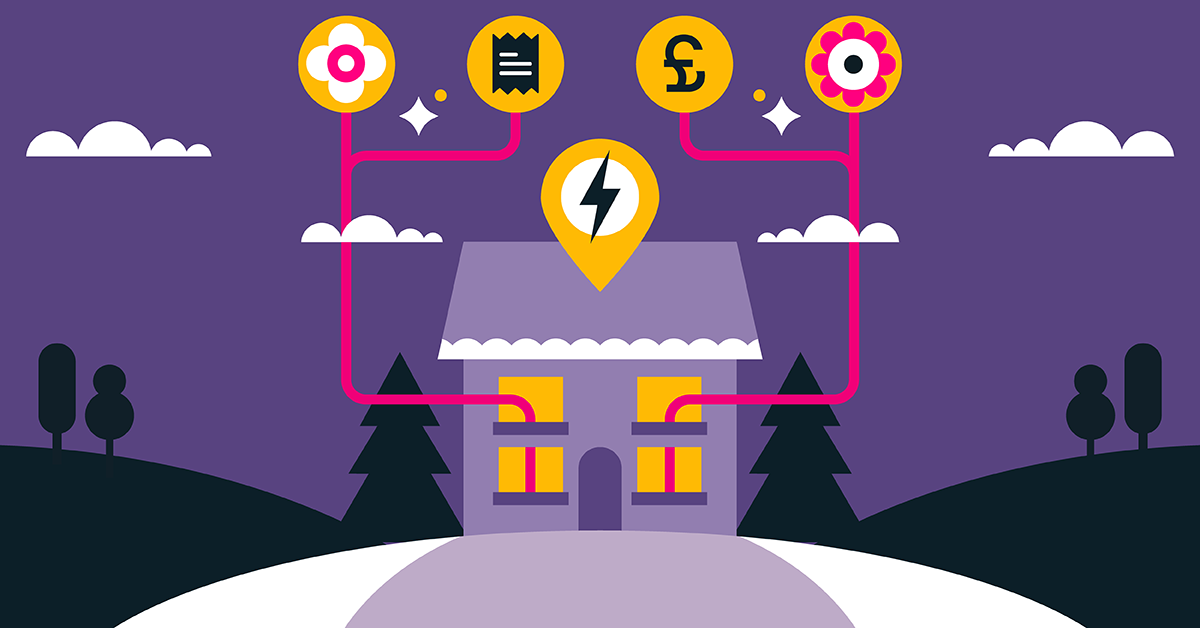In credit with your energy supplier? Here's how to claim your money back
Just because you’re owed money by your energy supplier, it doesn’t mean you’ll automatically get it back, without requesting it yourself.
So, here’s how to go about finding out if you’re in credit and then getting the money back.
Wasted energy makes up 30% of the average energy bill - do something about it! Get more from your smart meter with Loop.
Why would I be in credit with my energy supplier?
If you pay for your gas and electricity as and when you receive a bill, or using a prepayment meter, then you’ll only pay for what you use. But if you pay your energy bill by direct debit, then your supplier might end up owing you money.
This can happen because when you open an account with a gas or electricity supplier, they will estimate your annual energy consumption in order to work out how much to charge you. If this estimate doesn’t match your actual consumption, and you end up using less energy than the estimate your bills are based on, then you may end up being owed money by your supplier.
Your supplier may also end up owing you money if you don’t provide them with regular meter readings. Without regular readings, your supplier will have to estimate how much energy you’re using.
.png?width=300&name=In%20credit%20with%20your%20energy%20supplier%201%20(1).png)
Energy companies should review your direct debit payments at least once a year, but you can build up significant credit during this time if your payments are inaccurate.
If you’re in credit, your supplier might refund the money you’re owed at the end of the year, or pay the amount back by reducing your future direct debit payments
But if they don’t automatically do this, then you could claim back the credit yourself.
Claiming what you’re owed
If you pay for energy by direct debit, then check your online account or your latest statement to see whether you’re in credit or debt.
If you see that you’re in credit, then you can claim it back at any time. Energy regulator Ofgem has put rules in place forcing suppliers to reimburse you if you ask, unless there is a good reason not to do so.
Bear in mind though that it may be worth leaving the money on your account during summer and autumn to cover your higher energy costs in winter.
How to claim
Whilst some firms will refund automatically at certain times in the year, you may want to take the initiative and request the money yourself. To do so, call your supplier and give them an up-to-date meter reading, or see if they have an online form you can complete to request a refund.
.png?width=300&name=In%20credit%20with%20your%20energy%20supplier%202%20(1).png)
Citizens Advice says that your supplier might try to convince you to leave money on your account, but the decision is yours.
According to Which? it’s more straight-forward to get your money back from some companies than others.
If you’re having any issues with claiming credit back from your supplier then you can call the Citizens Advice consumer helpline for advice on what to do next.
Take back control
So, you’ve found out that you were owed money by your supplier and you’ve managed to get it back. That’s a great start and you’re regaining some control over your home energy spending. But it doesn’t stop there: there are other ways to ensure you’re not handing over too much of your cash to an energy supplier. One of the most effective is to increase the efficiency of your home.
Phantom Load, our name for the wasted energy used by appliances left on or on standby, makes up 30% of the average energy bill. Understanding your home's Phantom Load and the ways to reduce it is a good place to start if you're looking to cut your usage.
By taking some simple measures, you’ll be a couple of steps closer to taking control of your energy bills. You can go further still by signing up to Loop. With Loop, you can find out how to use energy, then make smart decisions about using less - get started on your energy-saving journey today!
• • •
Cut your energy bill with Loop
Loop is a FREE energy-saving app that links to your smart meter, analyses your energy use and shows you easy ways to save. On average, Loop users cut their electricity use by 16% and their gas use by 10%! How much could you save?








